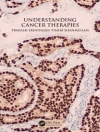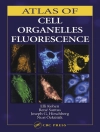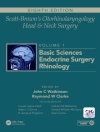Salivary gland cytopathology is one of the most challenging areas of diagnostic cytology. Salivary Gland Cytopathology will use a simplified algorithmic approach based upon differential diagnostic groups to cover practical aspects of diagnosing common as well as challenging salivary gland lesions.
This volume published in the “Essentials in Cytopathology” book series will fulfill the need for an easy-to-use and authoritative synopsis of site specific topics in cytopathology. These guide books fit into the lab coat pocket, ideal for portability and quick reference. Each volume is heavily illustrated with a full color art program, while the text follows a user-friendly outline format.
Table of Content
to FNA and Salivary Gland Neoplasia.- Salivary Gland FNA: Anatomic, Clinical, and Technical Considerations.- Algorithmic Approach to Salivary Gland FNA: An Overview.- The Normal Salivary Gland Aspirate.- Inflammatory Patterns and Lymphoma.- Matrix-Containing Tumors: Pleomorphic Adenoma and Adenoid Cystic Carcinoma.- Basaloid Tumors: Basal Cell Adenoma and Basal Cell Adenocarcinoma.- Oncocytic Tumors: Oncocytoma, Warthin Tumor, and Acinic Cell Carcinoma.- Cystic and Mucinous Lesions: Mucocele and Low-Grade Mucoepidermoid Carcinoma.- High-Grade Salivary Gland Tumors: Salivary Duct Carcinoma, High-Grade Mucoepidermoid Carcinoma, and Carcinoma ex Pleomorphic Adenoma.- Spindle Cell Tumors: Spindled Myoepithelioma, Myoepithelial-Predominant Pleomorphic Adenoma, and Schwannoma.- Clear Cell Neoplasms and Secondary Tumors: Epithelial-Myoepithelial Carcinoma.












